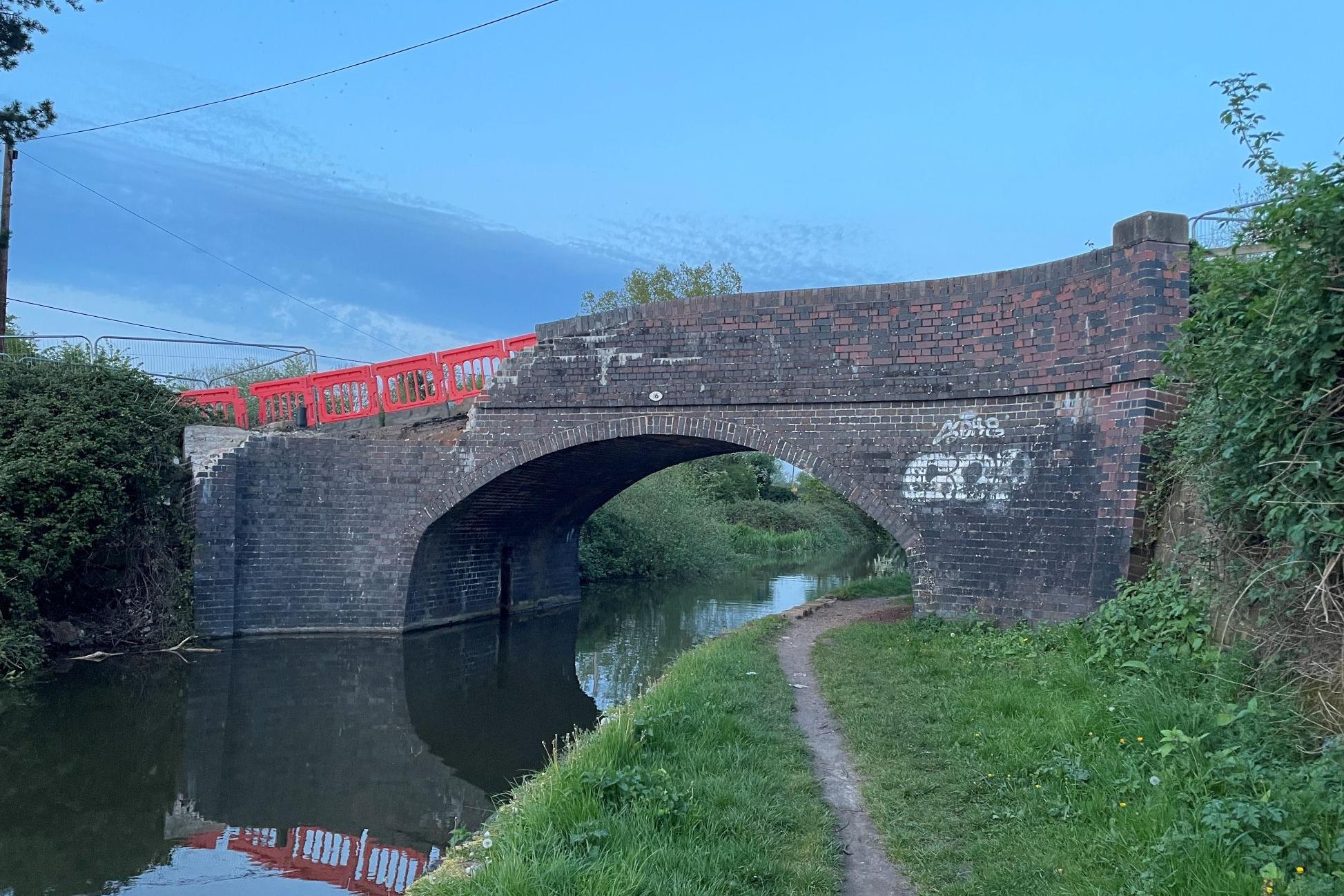
POLICE SEEK DRIVER WHO COST CANAL CHARITY £100,000
Police want to trace the driver of a vehicle that struck and damaged a 250-year-old canal bridge, costing a charity £100,000 to repair.
The bridge, on the Trent and Mersey Canal in Derbyshire, was closed to traffic for more than six weeks after the collision.
Derbyshire Police said the driver committed a criminal offence by not stopping and reporting what happened.
It also meant the Canal and River Trust (CRT) charity was unable to recoup the cost from the driver's insurers.
"Anyone who is involved in an accident must legally stop at the scene," said a police spokesperson, who added that the driver potentially endangered other road users and people using the canal.
"If there are any people with any information that can help then you can contact the force with reference 516-230424."
It is believed the bridge, which was designed for horses and carts, was struck by an HGV.
As the driver had damaged property, he or she should have reported the collision to police.
The penalties for not doing so include a fine, up to six months in prison, penalty points on their licence, and a court can also disqualify the driver from driving.
The bridge is number 16 on the Trent and Mersey Canal, which was built between 1766 and 1777.
It is known as Barrow Bridge, as it is situated to the north of the village of Barrow upon Trent.
Debris fell into the canal following the accident, meaning it was unsafe for boats to pass under the bridge for several weeks.
This caused some boats to be stuck on a short stretch of the canal until the debris was cleared.
The CRT charity, which is responsible for maintaining England's waterways, spends more than £1m a year repairing bridges damaged by vehicles.
This particular bridge is a collision "hotspot" and has been hit 16 times over the past 20 years.
Richard Bennett, heritage and environment manager for the CRT in the East Midlands, said it was "a crime against heritage".
"It's a really iconic symbol really," he said.
"They [canal bridges] symbolise a slower pace of life, which is what is so appealing about canals, but the problem is some drivers don't slow down when they come along them."
The charity is currently facing a reduction in government funding, which it has said puts the canal network at risk of closures.
"It's important that heritage is being looked after," said Mr Bennett.
"We really need people's support and we don't need reckless damage to these really key features.
"This one cost us £100,000 because we have to make it safe for the people travelling across it and the people underneath it, and that means other things don't get done around the network."
Speaking about why this bridge is a collision hotspot, Mr Bennett said: "It's a popular road. There's a lot of agricultural fields around it and it's a route that does get used by large farm traffic and HGV vehicles.
"You do have a fairly sharp bend from the road not that far away from it, and they cut the corner and go quickly."
He appealed to drivers to slow down when they come across humpback bridges.
"If it's a humpback bridge it's nearly always a canal," he said.
"Just think 'slow down' and think of the slow pace of life that's beneath it just for that moment while you're going across."
Follow BBC East Midlands on Facebook, on X, or on Instagram. Send your story ideas to [email protected] or via WhatsApp on 0808 100 2210.